What is Sport?
Defining sport
Definitions of sport may also be accompanied by definitions for one or more closely related activities that are ‘not’ sport. 1
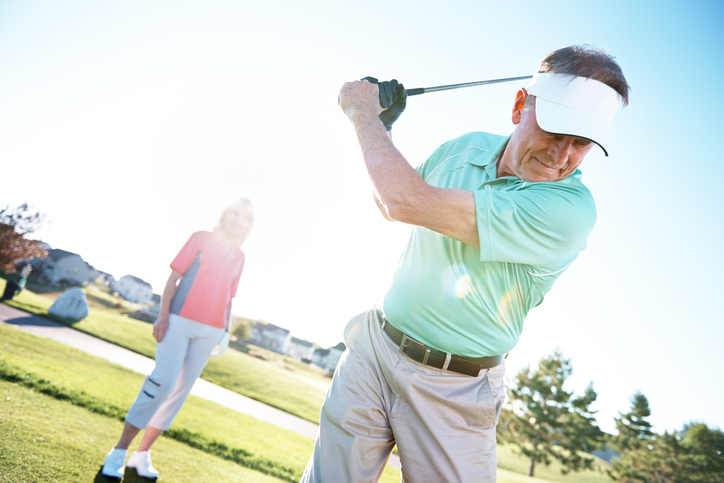
Sport
A human activity involving physical exertion and skill as the primary focus of the activity, with elements of competition or social participation where rules and patterns of behaviour governing the activity exist formally through organisations and is generally recognised as a sport. 2
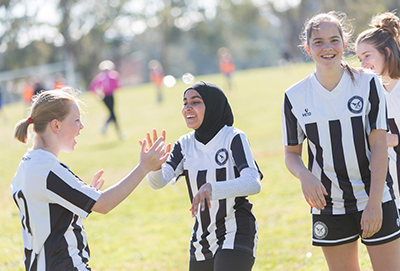
Organised sport
The degree of organisation or institutional structure that surrounds and influences the sport helps to distinguish whether an activity is classified as ‘organised sport’. 1, 4, 5, 6
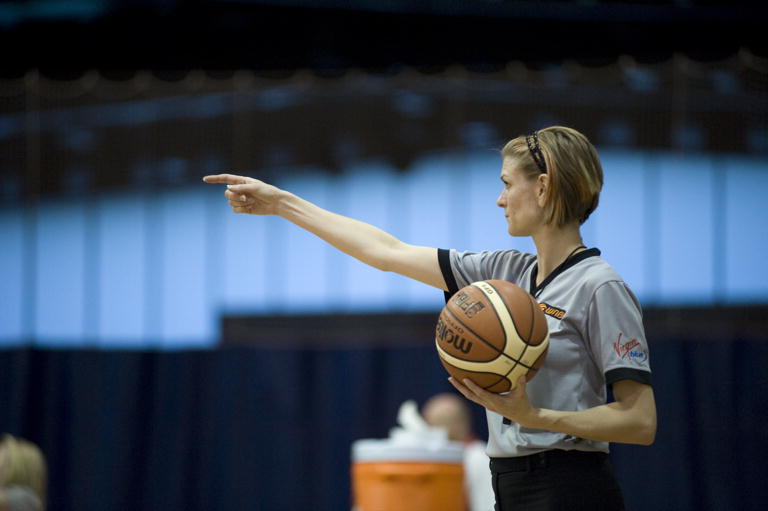
Sport participation
A ‘sport participant’ is a person who engages in some way in a sporting activity or event, including playing/competing; coaching, officiating, administrating, or other enabling roles (paid or volunteer); and/or supporting (e.g., cheering, being a fan, etc.). 7
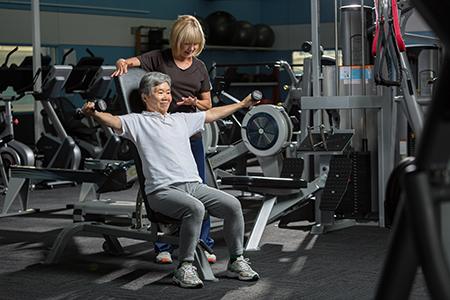
Physical activity
Any bodily movement produced by skeletal muscles that results in energy expenditure. 5
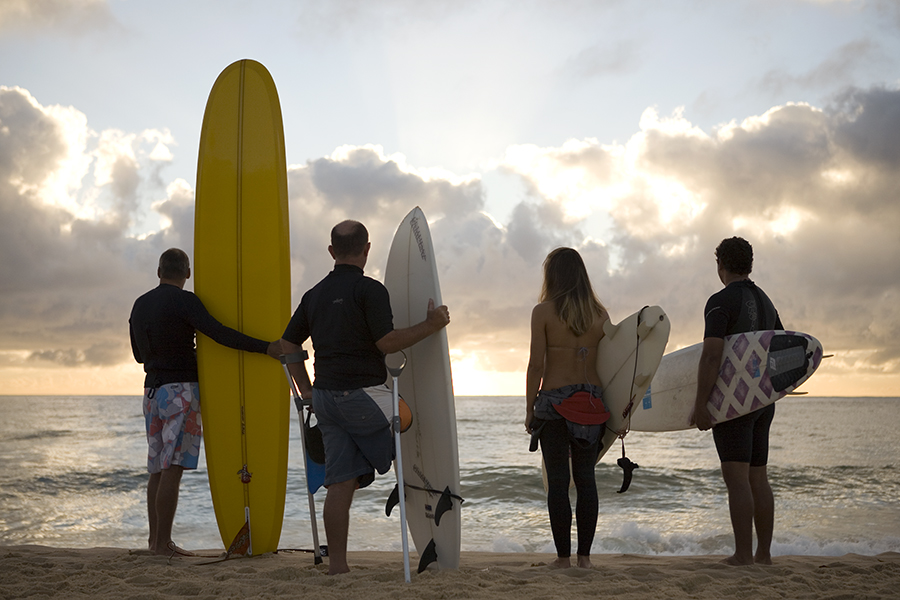
Active recreation
Activities engaged in for the purpose of relaxation, health and wellbeing or enjoyment with the primary activity requiring physical exertion, and the primary focus on human activity. 2, 8
Many definitions of sport exist in dictionaries, policy documents, and research papers.
Australians generally have a personal interpretation of what they consider sport, and in particular ‘organised sport’.
Related concepts
Terms (e.g., sport, recreation, physical activity, exercise) are often used interchangeably when they have similar structures and outcomes; and discretely to make a distinction of difference.
Modified sport
Modified sports can take many forms but are generally designed to be an introductory, or more accessible version, of a sport.
Social sport
Social sport, sometimes called informal sport, is a term used to identify engagement in sport in a less formal context.
Esport
Esports (electronic sports) is a collective term used to describe organized, competitive, video gaming.
Adventure, urban, and extreme sport
Core elements of sport (physical exertion and/or skill, competition, rules, and organisations) may apply, but not in a traditional sense.
Recreation
Active recreation is generally non-competitive physical activity engaged in for the purpose of relaxation, health and wellbeing, or enjoyment.
Play
Play refers to physical activities that are freely undertaken for pleasure, without externally imposed rules.
Future trends and perspectives
What will Australian and world sport look like in five, ten, or 30+ years? As society changes, what ‘sport’ looks like and its place in our culture, will also change.
Future of Australian sport
Six megatrends that will shape Australia's sports sector leading up to the 2032 Brisbane Olympic and Paralympic Games, and beyond.
International practice
International strategies, policies, programs, reports and research relating to the future of sport.
- Sport participation settings: where and ‘how’ do Australians play sport, Eime, R., Harvey, J., Charity, M., BMC Public Health, 20, Article 1344, (2020).
- National Sport and Active Recreation Policy Framework, accepted by all Australian Governments, (2011).
- How Australians describe the value and benefits of sport, Australian Sports Commission, (July 2022).
- Sport, Recreation and Play, United Nations Children’s Fund (UNICEF), (2004).
- WHO guidelines on physical activity and sedentary behaviour, World Health Organisation, (2020).
- Value and Benefits of Organised Sport: Research report, ORIMA for the Australian Sports Commission, (June 2022). [access may be restricted]
- Play Well: Australia’s Sport Participation Strategy, Australian sport sector, supported by the Australian Sports Commission, (November 2023).
- Every Body Active Strategic Plan 2020-2024, Sport New Zealand, (2020).
- Macquarie Dictionary [online], Macmillan Publishers, (accessed 9 January 2024).
- Revised European Sport Charter, Council of Europe, (adopted 13 October 2021).
- Implementation of a modified sport programme to increase participation: Key stakeholder perspectives, Buszard T, Oppici L, Westerbeek H, et.al., Journal of Sports Sciences, Volume 38(8), pp.945-952, (March 2020).
- Modified Sports, Clearinghouse for Sport, (accessed 10 January 2024).
- Play more, enjoy more, keep playing; rugby is a simple game, Ben Jones, Ed Hope, Andrew Hammond, et.al., International Journal of Sports Science and Coaching, Volume 16(3), pp. 636-645, (June 2021).
- Baskin – a new basketball-based sport for reverse-integration of athletes with disabilities: an analysis of the relative importance of player roles, Davide Sisti, Stefano Amatori, Roberto Bensi, et.al., Sport in Society, Volume 24(2), pp.277-285, (2021).
- Informal Sport as a health and social resource, Ruth Jeanes, Justen O’Connor, Dawn Penney, et al., Monash University, (June 2023).
- Social 7s, Softball ACT, (accessed 10 January 2024).
- Women’s social smash, Play Cricket, (accessed 10 January 2024).
- Fun Fit: Women’s Social Water Polo, Water Polo NSW, (accessed 10 January 2024).
- Footy 9s, Australian Football International, (accessed 10 January 2024).
- FIBA 3x3 World Cup, Wikipedia, (accessed 10 January 2024).
- History of 3x3 Basketball, International Olympic Committee/FIBA, (accessed 10 January 2024).
- The rise and development of pole sports worldwide, Global Association of International Sports Federations (GAISF), (21 July 2020).
- International Pole Sports Federation [website], (accessed 10 January 2024).
- Esports, Wikipedia, (accessed 10 January 2024).
- The Future of Australian Sport. The second report: Megatrends shaping the sport sector over coming decades, CSIRO/Australian Sports Commission, (December 2022).
- Is An Esport Really a Sport? Phil Birch and Edgar Chekera, Psychology Today, (19 April 2020).
- eSports – Competitive sports or recreational activity? Hallmann, Kirstin; Giel, Thomas, Sport Management Review, Volume 21(1), (February 2018).
- Virtual(ly) athletes: Where eSports fit within the definition of “Sport”, Jenny S, Manning D, Keiper M and Olrich T, Quest, Volume 69(1), pp.1-18, (2017).
- Actually, Esports Is Sport: A Response to Parry’s (2019) Misguided View, Michael Naraine, Sports Innovation Journal, Volume 2, pp.33-44, (2021).
- Global Esports & Live Streaming Market Report, NewZoo, (March 2021).
- IF Gaming and Esports Strategy, Association of Summer Olympic International Federations (ASOIF), (September 2019).
- Major determinants for International Federations to adopt esports as part of their digitalisation strategies, Association of Summer Olympic International Federations (ASOIF), (2019).
- Olympic Agenda 2020+5: 15 recommendations, International Olympic Committee, (May 2020).
- How extreme skiing works, Tom Scheve, MapQuest Travel, (accessed 10 January 2024).
- Defining Extreme Sport: Conceptions and Misconceptions, Rhonda Cohen, Bahman Baluch, Linda Duffy, Frontiers in Psychology, Volume 9, (October 2018).
- To Analyze Thrill, Define Extreme Sports, Ralf Buckley, Frontiers in Psychology, Volume 9, (July 2018).
- Extreme sports, Encyclopaedia Britannica, (updated 13 November 2023).
- Editorial: Understanding Extreme Sports: A Psychological Perspective, Eric Brymer, Francesco Feletti, Erik Monasterio, et al., Frontiers in Psychology, Volume 10, (January 2020).
- Downhill skiing: winter sport, Encyclopaedia Britannica, (updated 28 December 2023).
- How extreme skiing works, Tom Scheve, MapQuest Travel, (accessed 10 January 2024).
- The Park and Recreation Professional’s Handbook, Hurd A, Anderson D, Human Kinetics, (2011).
- Active Impacts: The economic impacts of active recreation in Victoria, Marsden Jacob for Sport and Recreation Victoria, (March 2018).
- The value of community sport infrastructure: Investigating the value of community sport facilities to Australia, KPMG for the Australian Sports Commission, (2018).
- Monash Active Recreation Opportunities Strategy, City of Monash, (November 2021).
- The Play Return: A review of the wider impact of play initiatives, Gill T, commissioned by the Children’s Play Policy Forum, United Kingdom, (2014).
- Play, Psychology Today, (accessed 11 January 2024).
- You think you are too old to play? Playing games and aging, Bronkkowska M, Bronikowski M and Schott N, Human Movement, Volume 12(1), (2011).
- Play for adults, National Institute for Play, (accessed 11 January 2024).
- The Importance of Play for Adults, Saya Des Marais, PsychCentral, (updated November 2022).
Last updated: 12 January 2024
Content disclaimer: See Clearinghouse for Sport disclaimer
IS THIS INFORMATION COMPLETE?
The Clearinghouse for Sport is a sector-wide knowledge sharing initiative, and as such your contributions are encouraged and appreciated. If you would like to suggest a resource, submit a publication, or provide feedback on this topic, please contact us.
Alternatively, if you would like to be kept up to date with research and information published about this topic, please request a research profile setup.

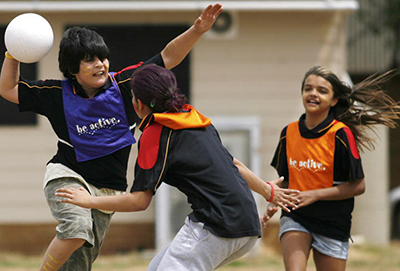













Related concepts
Social sport
'Social sport' also sometimes called ‘informal sport’ is a term used to identify engagement in sport in a less formal context, e.g., beach or backyard cricket, a group of friends who get together to play football or basketball, cycling or running groups. 15
Social sports may have many of the elements of modified or recreational sports, including elements of competition, and a similar look and feel to standard or traditional sports, but there is generally no governing organisation to influence the participants' intent, or assign external value to any competition outcome. 15
People engage in social sport for many reasons, most of them intrinsic, e.g., for enjoyment, personal health and fitness, emotional wellbeing (feeling good), and social interaction (inclusion and friendship). 15
Sporting organisations increasingly view social sport as a way to increase their brand appeal, satisfy consumer demand, create a long-term affiliation with their (potential) customers, and engage a wide range of ability levels within a single sporting context. 16, 17, 18
A common strategy underpinning a social sport product is to reduce the need for acquired skills and experience, while highlighting the social and fitness components of the activity. This approach is intended to create a wider appeal to different ages and persons having different skill levels, encouraging them to participate together.
The below examples illustrate how a standard sport can become more social (Barefoot Bowls, AFL 9’s) and a social sport (Basketball 3x3, Pole sports) can become more mainstream.
Access to resources
Where possible, direct links to full-text and online resources are provided. However, where links are not available, you may be able to access documents directly by searching our licenced full-text databases (note: user access restrictions apply). Alternatively, you can ask your institutional, university, or local library for assistance—or purchase documents directly from the publisher. You may also find the information you’re seeking by searching Google Scholar.